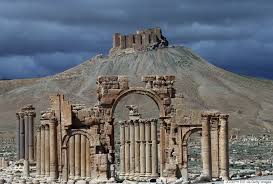Culture and politics can be closely intertwined – Mechtild Rössler knows that. She need only look at Syria, Iraq, Libya or Yemen – places where cultural heritage is being wilfully destroyed as part of a military strategy.
Take the ancient Syrian city of Palmyra, where Islamists blew up around 2,000-year-old monuments and temples in 2015.
The “cradle of humankind” is being threatened here, is how the new Director of the UNESCO World Heritage Centre put it. That’s why Mechtild Rössler regards better protection of cultural heritage that is threatened by crises as one of her most important tasks: to preserve “this essential element of our history, our identity and our future” and keep it for future generations. They have “a right to see this heritage”, says the 56-year-old German.
Mechtild Rössler knows her job like few others. She has been working at UNESCO for many years, most of them at the World Heritage Centre, which she has headed since September 2015. She joined UNESCO “by accident”, through a research stay in Paris, Mechtild Rössler explains.
Originally intending to stay for two years, she can now look back on two and a half decades there. Yet Rössler, who holds a PhD in geosciences, still enjoys her work because she believes it is particularly meaningful.
She puts it this way: protecting world heritage, which now encompasses 1,031 natural and cultural heritage sites in 163 countries, “is one of the most rewarding jobs imaginable“.



